SESA is a project, which aims at providing energy access technologies and business models that are easily replicable and generate local opportunities for economic development and social cohesion in Africa. However, one of the questions we asked ourselves is “How can we get information on energy to people who do not have access to the Internet?” and that’s how the initiative of deploying the SESA Info-spots was born.
Africa has about 20% of all landmass of the world and to cover large areas makes installation of broadband challenging and expensive. Given the lower income in rural areas, the gap between available funds and costs of access is huge. As a result, schools are not connected, areas are uncovered and the majority of people in South of Sahara Africa (SSA) have no access to the Internet.
The energy sector is currently undergoing a major shift, and in response, SESA is taking action to ensure that individuals have access to the information and resources they need to expand their knowledge on the subject. To achieve this goal, SESA has developed a unique solution: the deployment of wireless information hubs, known as Info-spots, which offer free, comprehensive information on energy for all those who seek it.
Empowering Communities through Renewable Energy Outreach: A Dual Approach
In its ongoing efforts to promote renewable energy, the SESA project has been exploring the most effective ways to reach and educate individuals. To achieve this goal, the project has pursued two main strategies: The integration of Info-spots alongside energy installations such as solar panels in micro-grids, providing both access to energy and information on energy. And, the connection of schools with the goal of incorporating energy education into the school curriculum, fostering a new generation of informed energy consumers. Through these efforts, SESA is working to create a more sustainable future, one community at a time.
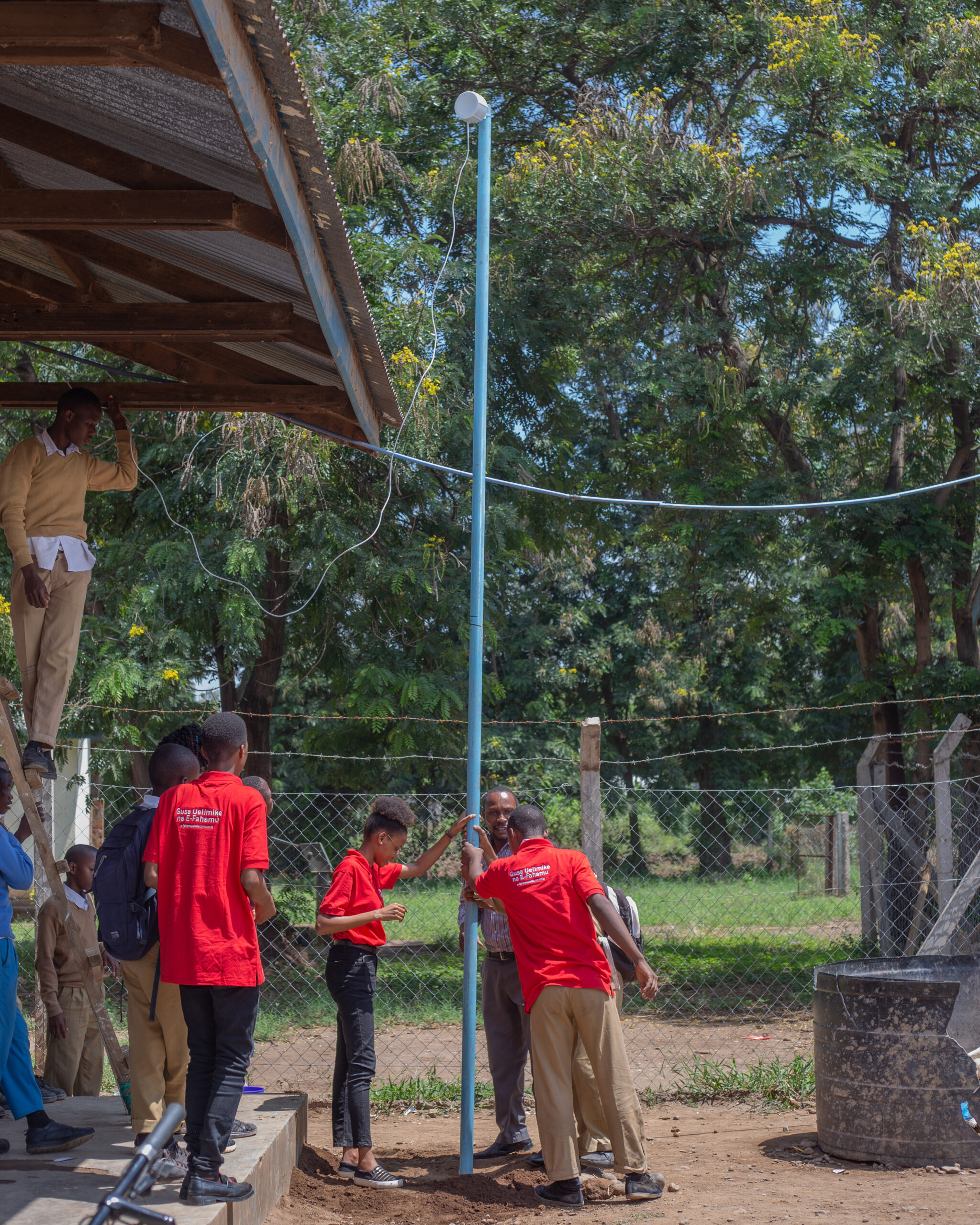
Catherine Kimambo from Basic Internet and her team from African Child Projects establish the antenna to reach the far away Internet at Mpirani School
This initiative focuses on connecting schools, where the Basic Internet Foundation establishes a pole with a directive antenna, a local network control centre (LNCC) and a school server.
The image shows how poles are installed with the antenna to reach out to mobile towers as far as 20 kilometres away.
Typical range of mobile towers is 7-9 kilometres, and by lifting the antenna to 6 metres, the length of the water pipe, and by adding the directive antenna the range can be doubled. Thus, able to provide access to information in areas where “nobody believes that you can connect”.
SESA is committed to making a lasting impact in the field of renewable energy, and a crucial part of this mission is ensuring widespread access to information.
As part of this effort, the organisation has set an ambitious target of deploying at least 80 Info-spots across 9 African countries, which are partners of SESA. Of these, 12 Info-spots will be situated at the SESA living lab sites, while the remaining 68 will be installed at schools, bringing energy knowledge to communities and the next generation alike.
Addressing the Challenges of InfoSpot Implementation through Regional Competence Centers
Our aim is to establish Regional Competence Centers (RCCs) within academic institutions to address the numerous challenges in the creation of InfoSpots. These challenges include building regional competency, recruiting personnel for installation, providing community training on how to use the InfoSpots, and ensuring the affordability of a typical 10-20 GB data package at a monthly cost of 20 USD.
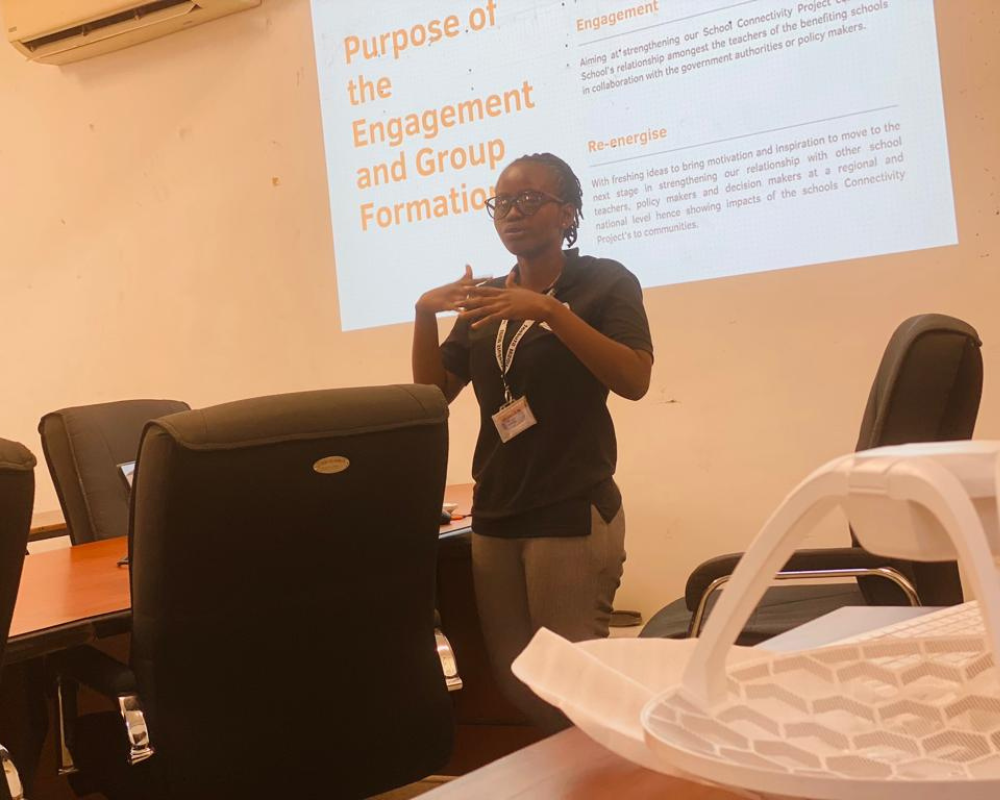
Dorothy Makala engaging her co-students for configuration in the re-energise session.
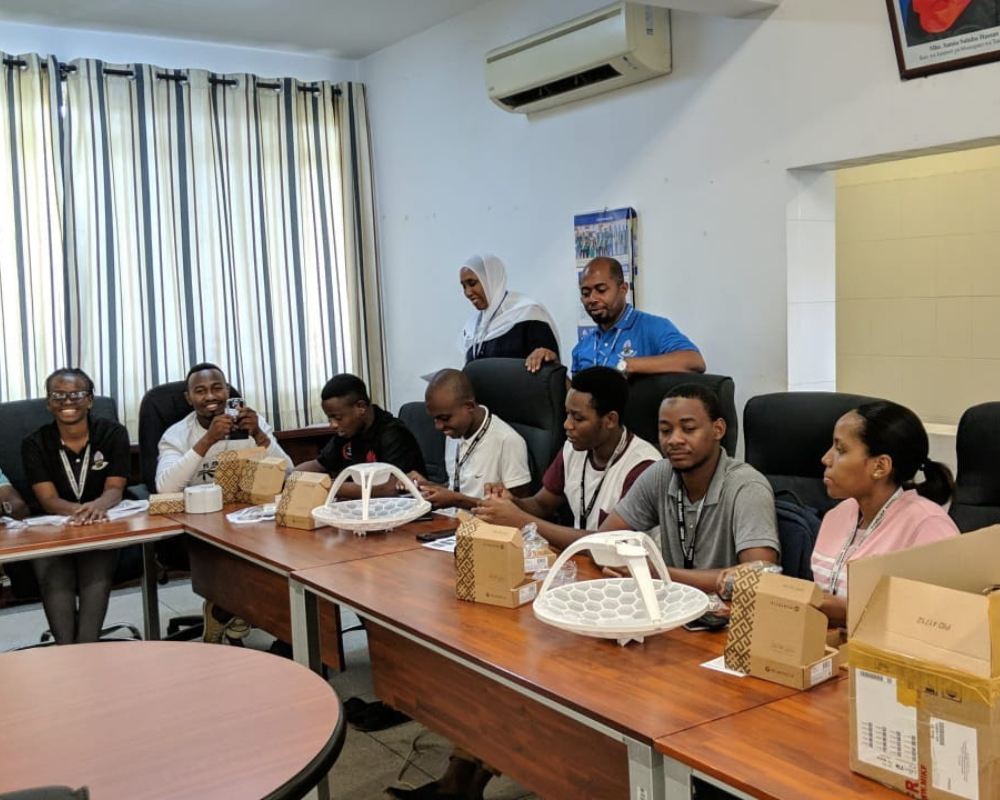
A typical configuration session at the RCC, where the students unpack the received devices and start the configuration. Basic Internet, in collaboration with University of Oslo (UiO), has established courses and instructions for the configuration, as well as the infrastructure needed to operate the Info-spots.
Community-Led Efforts to Bring Internet Access to Rural Areas
Addressing the global climate crisis requires action from everyone, and Africa is no exception. One critical aspect of this is the transition to renewable energy. However, this transition must be grounded in empowerment and education. The disparity between the cost of access to information on energy and affordability presents a challenge, making InfoSpots with free access to this information a crucial starting point. This free access to information provides a foundation for communities to make informed decisions and chart a course towards a more sustainable future.
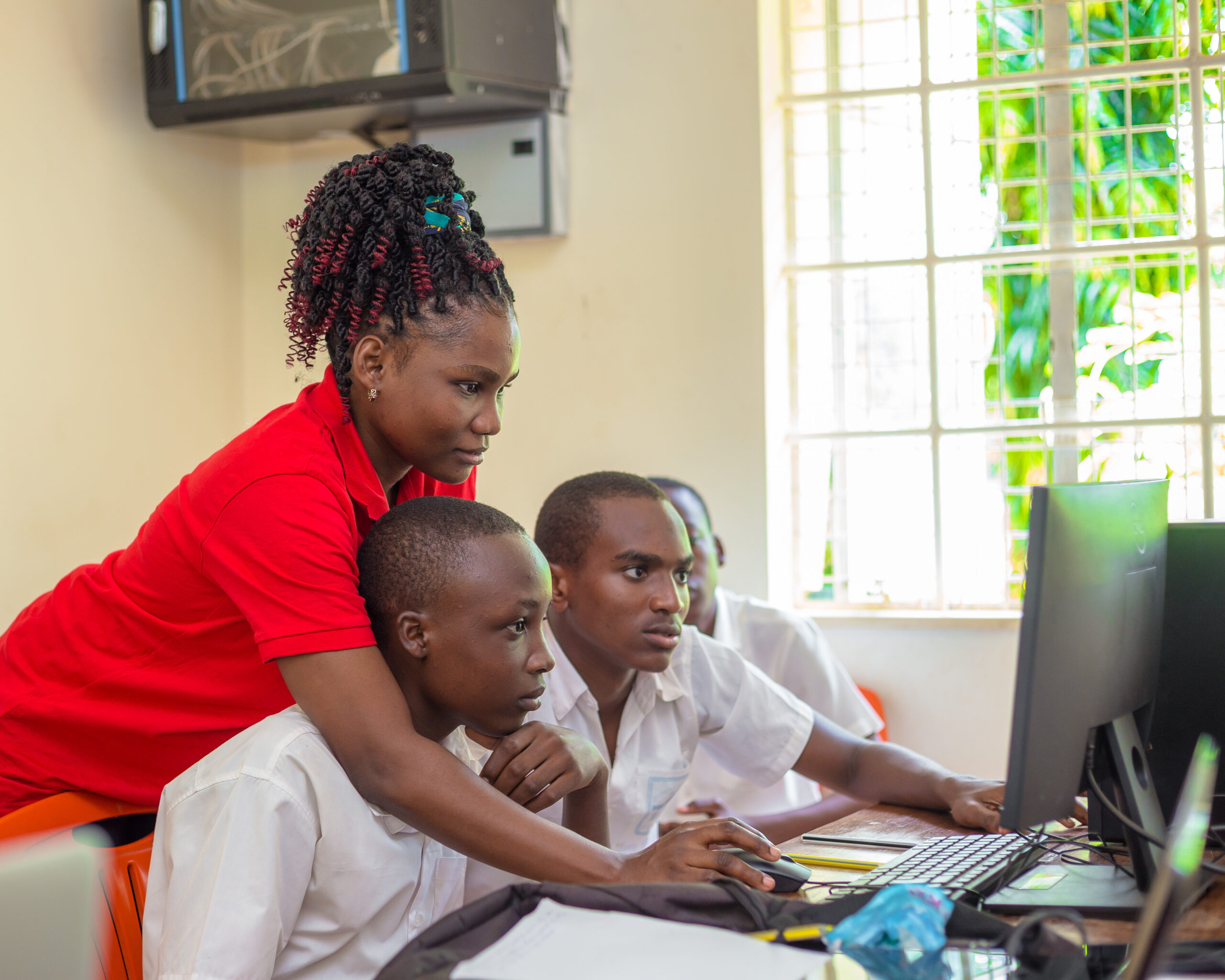
Jovina Theobard from African Child Projects teaching boys at Mawenzi School in Tanzania
Installing Info-spots in rural areas is a collaborative effort that brings people together in a shared mission to bridge the digital divide. From the configuration work carried out by students at Regional Competence Centers (RCCs) to the hands-on training provided by community members, the installation process highlights the importance of community engagement. The real highlight is when the pole is set-up, serving as a visible symbol of the school’s connection to the Internet. This sight engages all students and is a source of pride for the entire community.
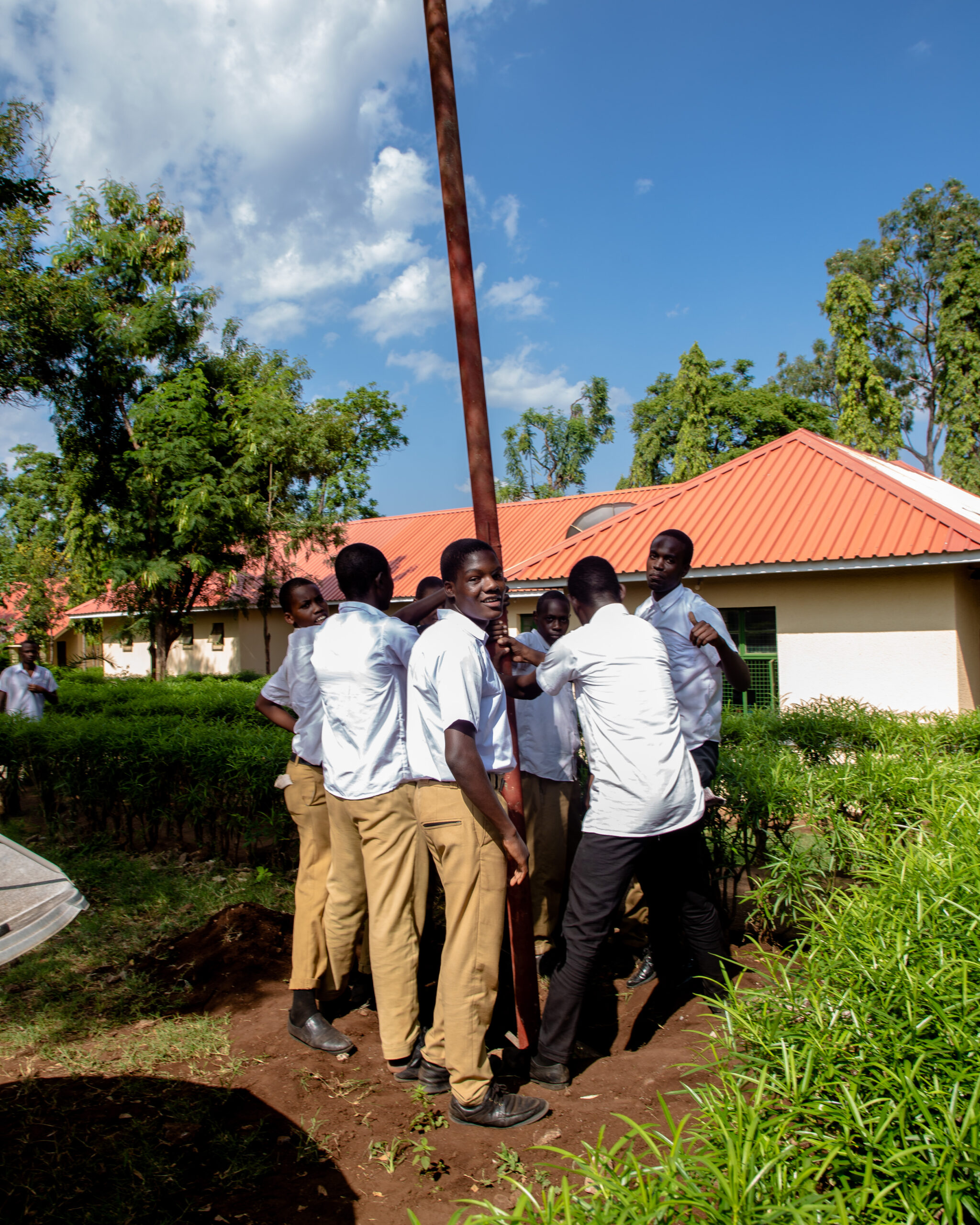
Community engagement – all hands are needed to establish the pole for the antenna
Access to information is the first step in empowering communities and promoting positive change. In rural areas, this is particularly important for school children who go home and share their newfound knowledge with their families. One example of this is the story of Cysticercosis, a tapeworm found in Africa, which a daughter learned about in school and was able to share with her father. By spreading awareness and educating communities, we can make a real impact in promoting better health and hygiene practices.
Thanks to the co-sponsoring from Vodacom Foundation and the Universal Communication Service Access Fund (UCSAF), Basic internet Foundation is able to sponsor some schools with tablets to enhance wireless access.
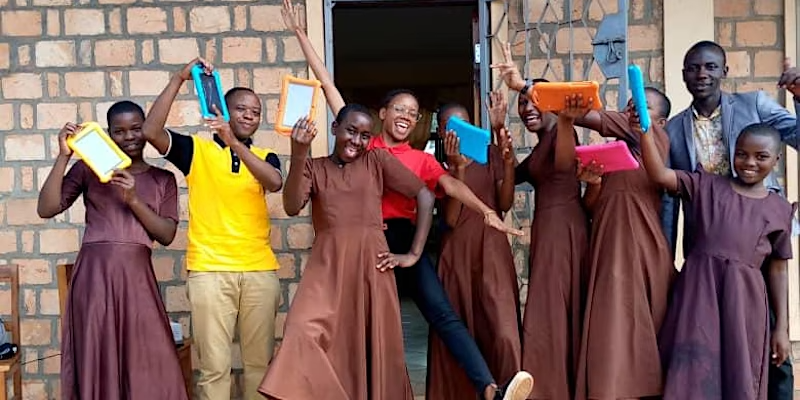
Catherine Kimambo and students at Stagell enjoy yet another school being connected
Stay tuned with SESA to learn more about co-installations and the uptake on energy information. Learn how to get involved here.


